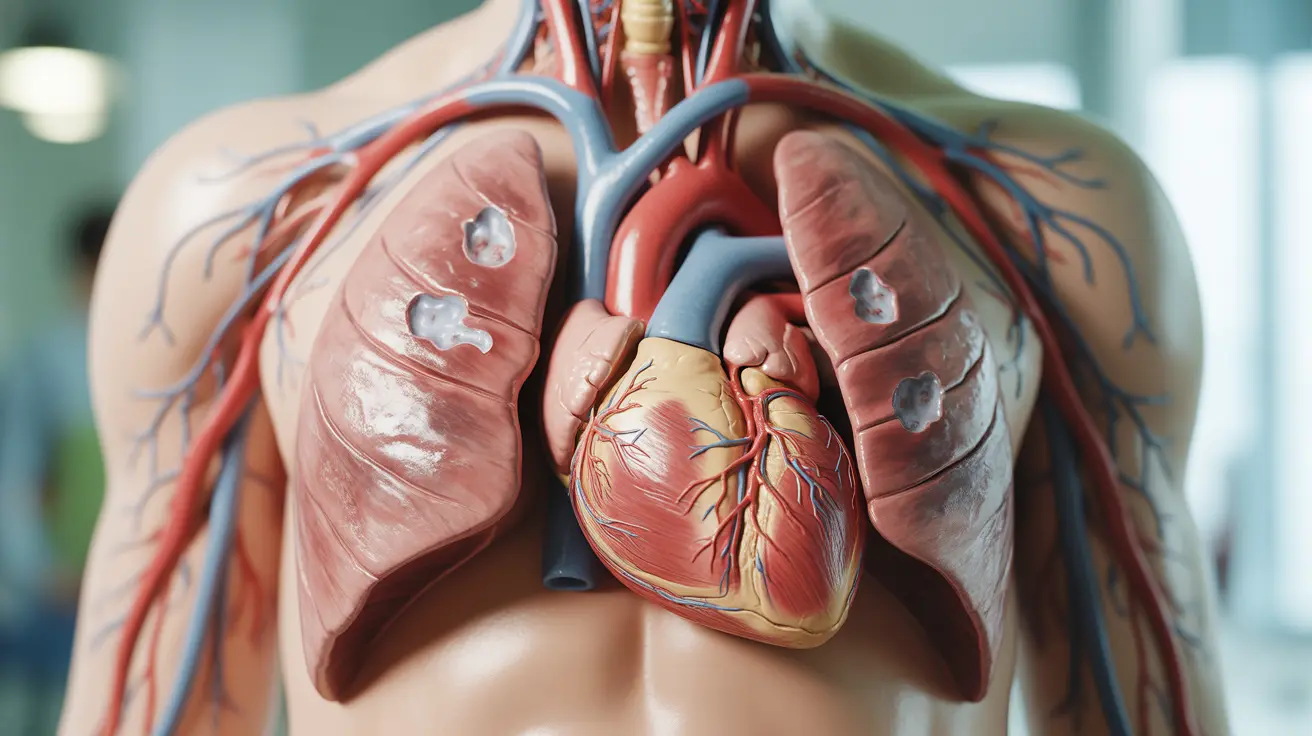A cardiac cough is a distinctive symptom often associated with heart conditions, particularly congestive heart failure. Understanding this specific type of cough and its implications is crucial for proper diagnosis and treatment. Unlike common respiratory coughs, a cardiac cough has unique characteristics and requires targeted medical intervention.
In this comprehensive guide, we'll explore the distinguishing features of cardiac cough, its underlying causes, treatment approaches, and warning signs that warrant immediate medical attention.
Understanding Cardiac Cough and Its Causes
Cardiac cough primarily occurs when fluid accumulates in the lungs due to the heart's inefficient pumping action. This condition, known as pulmonary edema, triggers a persistent cough as the body attempts to clear the excess fluid from the airways.
The main characteristics of a cardiac cough include:
- Wet, productive cough with white or pink-tinged mucus
- Worsening when lying flat
- Accompanying shortness of breath
- Often more severe at night
- Persistent nature that doesn't resolve like typical colds
Distinguishing Features from Other Types of Cough
Several key factors help differentiate a cardiac cough from respiratory infections or allergies:
- Position-dependent symptoms
- Association with other heart failure symptoms
- Lack of typical cold or flu symptoms
- Duration and persistence of the cough
- Response to cardiac medications rather than cold remedies
Treatment Approaches for Cardiac Cough
Medical Interventions
The primary focus of cardiac cough treatment involves addressing the underlying heart condition through:
- Diuretics to reduce fluid buildup
- Heart medications to improve cardiac function
- Blood pressure management
- Oxygen therapy when needed
Lifestyle Modifications
Several lifestyle changes can help manage cardiac cough effectively:
- Maintaining a low-sodium diet
- Regular monitoring of fluid intake
- Sleeping with elevated head position
- Planned physical activity as recommended by healthcare providers
- Weight management
Managing Medication Side Effects
Some heart medications, particularly ACE inhibitors, can cause a dry cough as a side effect. This type of cough differs from the wet, productive cough associated with heart failure and may require medication adjustments by your healthcare provider.
Warning Signs and Emergency Situations
Certain symptoms indicate the need for immediate medical attention:
- Severe breathing difficulty
- Chest pain or pressure
- Coughing up pink, foamy mucus
- Rapid or irregular heartbeat
- Sudden worsening of symptoms
Frequently Asked Questions
- What are the symptoms that distinguish a cardiac cough from other types of coughs?
A cardiac cough is typically wet and productive, often containing white or pink-tinged mucus. It usually worsens when lying flat, is more severe at night, and is accompanied by shortness of breath. Unlike regular coughs, it persists longer and doesn't respond to typical cold remedies.
- How is cardiac cough typically treated, and what lifestyle changes can help manage it?
Treatment involves medications like diuretics and heart medications, along with lifestyle changes such as reducing sodium intake, monitoring fluid intake, elevating the head while sleeping, and following a prescribed exercise program.
- What causes cardiac cough in people with heart failure, and how does it relate to fluid buildup in the lungs?
Cardiac cough occurs when the heart's inefficient pumping causes fluid to accumulate in the lungs (pulmonary edema). This fluid buildup triggers the cough reflex as the body attempts to clear the airways.
- Can medication side effects, like those from ACE inhibitors, cause or exacerbate cardiac cough?
Yes, ACE inhibitors can cause a dry, persistent cough as a side effect, which is different from the wet cough associated with heart failure. If this occurs, healthcare providers may adjust medications or switch to alternative treatments.
- What are the signs that indicate cardiac cough is worsening or needs immediate medical attention?
Seek immediate medical care if you experience severe breathing difficulty, chest pain, pink foamy mucus when coughing, rapid or irregular heartbeat, or sudden worsening of symptoms.
Remember, cardiac cough is a serious symptom that requires proper medical evaluation and ongoing management. Always work closely with your healthcare team to develop an appropriate treatment plan and monitor your condition effectively.




